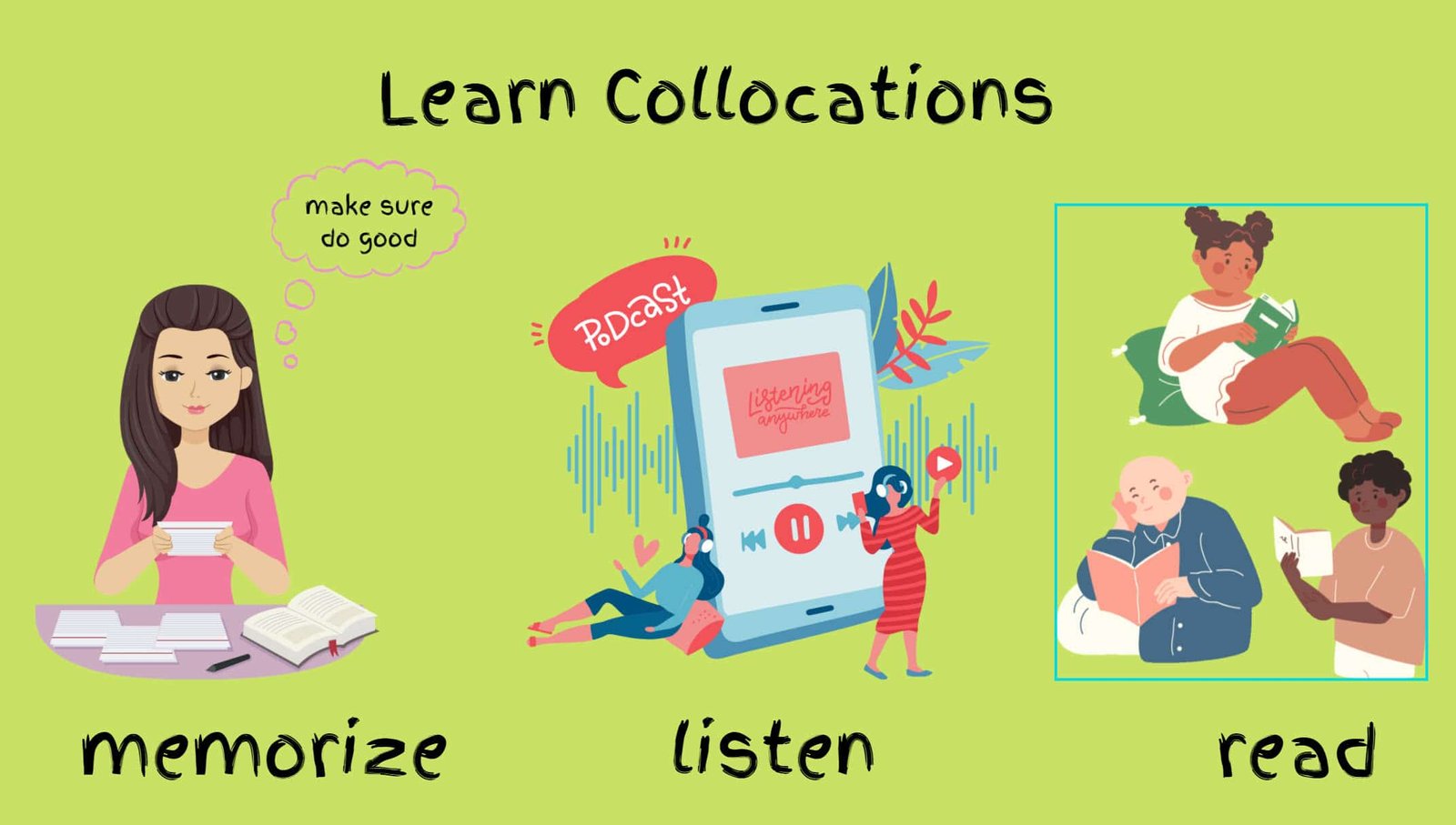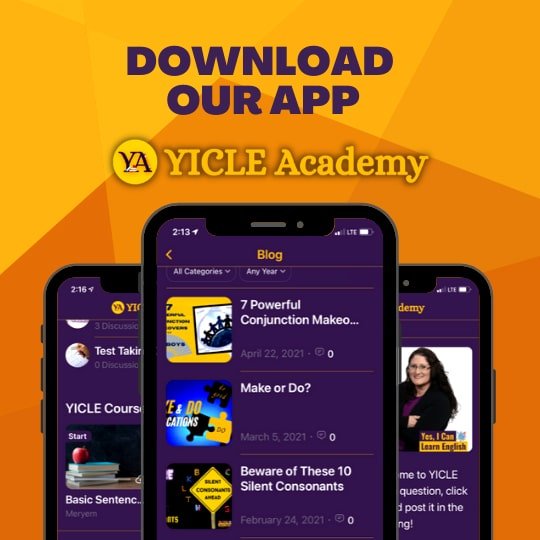What are Collocations?
“Collocation” is how words are combined to create speech and writing that sound natural. There are some combinations of words that are correct, but even though their usages would be understandable, some collocations are not right. If I told you, “I am doing coffee,” you would still understand me even though it is not the correct word combination. “I am making coffee” is the expression used by native speakers of English.


Why should we care about using collocations correctly? If we are learners of English as a second language, using the right word combinations helps us sound more natural and native speaker-like. Additionally, our messages will be much more precise and clear.


In this article, I will concentrate on some of the top 30 common collocations with “make” and “do” that can be problematic to learners of English as a second language. You can watch the video later in this post for the full list.
Examples of Collocations
Here are five collocations with “make” followed by a sample sentence:
- Make a deal: I will make a deal with you: you do the laundry, and I will do the cleaning.
- Make a living: She is looking for a second job to make a living.
- Make an excuse: Stop making excuses and finish what you have started.
- Make an impression: It is important to make a great first impression during an interview.
- Make sense: What she proposes makes sense.
And here are five collocations with “do” followed by a sample sentence:
- Do someone a favor: Could you do me a favor and turn on the heat?
- Do better: Don’t worry you will do better next time.
- Do a good job: She is doing a good job in the new coffee shop.
- Do exercises: It is important to do exercises at any age.
- Do homework: Before you can play video games, you must do your homework.

Need help?
Contact me or set up a free consultation.
You can find more examples of collocations in my video:
Top 30 Make & Do Collocations
I have given examples for each of these “make” and “do” collocations in the video below. Feel free to review them often.

Conclusion
As learners of English as a second language, using collocations correctly can help us sound more natural when we are speaking.
One way of learning these collocations is by memorizing them. Another way is to use them in your daily use of English. Of course, since these are so common and are used quite often, I recommend you read different resources in English, listen to podcasts or news reports, and watch TV shows or movies with subtitles.
Over time, using these correctly will become second nature to you, and you will be on your way to sounding just like a native speaker.






